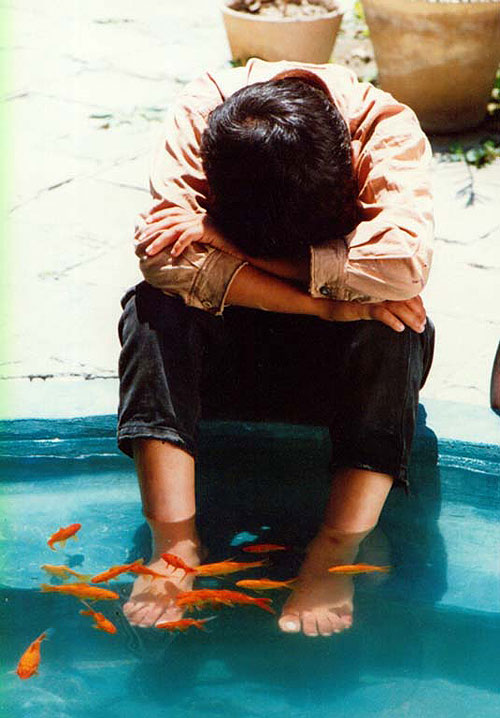Reżyseria:
Majid MajidiScenariusz:
Majid MajidiZdjęcia:
Parviz MalekzaadeMuzyka:
Kayvan JahanshahiOpisy(1)
Ali i Zahra mieszkają z rodzicami w ubogiej dzielnicy Teheranu. Pewnego dnia 8-letni Ali gubi, niezupełnie z własnej winy, odebrane właśnie od szewca buty siostry. Przekonuje ją, by do czasu, aż Ali zdobędzie inne trzewiki, nosili na zmianę jego buty. Zahra odkrywa, że inna dziewczynka nosi jej zgubę. Gdy stwierdza, że żyje ona w jeszcze większej biedzie, rezygnuje z walki o swoją własność. Tymczasem Ali dowiaduje się o biegu organizowanym dla uczniów jego szkoły. Nagrodą za trzecie miejsce są buty. (Cinemax)
(więcej)Recenzje (3)
Very powerful film about how one little boy lost his shoes. You could almost say, what kind of theme is that, but when you take the right characters, the right setting, and the right social class, a powerful film can be made out of it. Iranian cinema once again proves to be among the best in the Arab countries in the long term.
()
It was a great idea to criticize degrading social conditions through an almost fairy-tale story told from a naive child's perspective. And while the execution isn’t groundbreaking in terms of artistic values or emotions, and the film falls short of the similarly-tuned Slumdog Millionaire in almost every respect, the final impression, which includes, among other things, just about everything we criticize elsewhere (from moral omniscience to visible emotional blackmail), could hardly be better or more sympathetic. Majid Majidi very skilfully weaves in between all the clichés, lets his love for the craft speak for itself and gives his characters such a vivid and believable form that I would be ashamed not to cheer for them and live with them for those 90 minutes until the very, by the way, really touching end. To the land of hell I hereby send a divine 4* :)) 80%
()
You got me, you bastards! I am usually immune to the exploitation of children in cinema and emotional manipulation of viewers, and this mass-abused trend annoys me. But when I think about it, I can't really criticize Majidi's film for anything significant. It is an honest and well-made social drama with very good performances by the child actors, and I did not notice any flaws in the script, although it is possible that I have not familiarized myself enough with the social reality of the Iranian urban environment to discover any embellishments of reality. As both the director and screenwriter, Majidi simply succeeds in capturing the emotions he strives for in his film. In Europe, at least since the mid-50s, this genre no longer works because the welfare state has taken care of erasing the most glaring images of poverty and social deprivation. Overall impression: 90%. My five stars may also be related to the fact that I am not that familiar with Iranian cinema. If I count correctly, this is only the fifth feature film I have seen. Iranian filmmakers tend to overuse child motifs due to censorship and numerous social taboos, so a third or subsequent film on this topic might not impress me as much.
()


Reklama